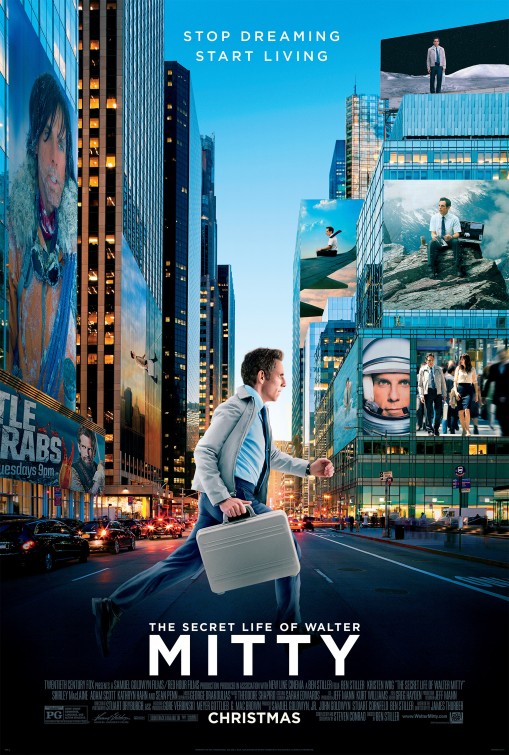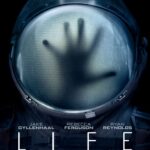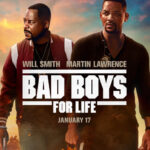Stop Dreaming, Start Living
Director
Ben Stiller
Starring
Ben Stiller
Kristen Wiig
Comedians make the best dramatic actors. No one chooses to be (genuinely) funny, it’s a defence mechanism to cope with some simple or terrible trauma. As such, comedians make a name for themselves through self-deprecation and slap-stick but once stardom is achieved, they all seem to seek out serious roles. So far, Ben Stiller’s only attempts have been Greenberg and now this.
Walter Mitty [Stiller] is your atypical unassuming office nobody, who is both very good at his job and extraordinarily good at being unnoticed by everyone around him. Mitty also suffers from a debilitating wandering imagination. Often he will find himself zoning out of whatever monotonous situation he’s in, exploring a fictional world of back-chatting to bullies, beating up wrong-doers and other tales of romantic heroism. All of which are abruptly climaxed when he snaps back to reality. The object of Walter’s affection, is a co-worker by the name of Sheryl [Wiig]. Lacking the courage to simply talk to her, Walter fantasises several elaborate first encounters. Both Walter and Sheryl work for Life magazine and have been told by a transition manager [Adam Scott] that Life will be closing down and publishing it’s final issue. Renowned photographer, Sean O’Connell [Sean Penn], has sent in a picture he believes to be his finest and has insisted that it be used for the cover. The only problem is, Walter cannot find it. And so, the man who has never really been anywhere or done anything, sets out on a real adventure to track down the missing picture.
First thing to note are the performances. Stiller easily gives the best of his career and there’s a wealth of maturity and depth to a man we so often see playing an irritating, back-chatting, hairy, little pleb. Additionally, Adam Scott is a treat. It’s not often he plays a really fun villain but his role as the callous supervisor of the magazine’s closure is the embodiment of base level executive bullying. Unfortunately, the supports falter a little, not necessarily in performance, simply in how much material the script affords them. Kristen Wiig and Kathryn Hahn feel criminally underused (merely forwarding the story where necessary) and both Sean Penn and Shirley MacLaine are great but far from utilised to the degree they could be. The only other cast member that crops back in a welcome manner is Patton Oswalt as the upbeat, eerily available eHarmony service representative, Todd. Even if the majority of the mobile phone calls between him and Walter shouldn’t have happened due to, oh I don’t know, no reception atop the fucking Himalayas. Speaking of which, the whole movie, from the vast landscapes of Iceland and Greenland to the skyscrapers and office buildings of New York is beautifully shot. Complimenting the amazing cinematography is an excellent score but sullied by wet unenthusiastic indie rock pieces by Jose Gonzalez. I’ve got nothing against the guy but the combination of his music and all the product placement, I was half expecting Stiller to turn to the camera and say, “You should see this” or something equally absurd, before a Nikon logo fades into view. But it’s not all a technical marvel, the editing is a little choppy in its execution and the while the CGI and production value are overall impressive, they still have their flawed moments.
There endeth the positives, now on to the darker side of the film: the message. I dunno, maybe I’m just a little sick of seeing the office nerd or the unseen rose becoming this action hero or a fucking prom queen or some other unrealistic bullshit. I mean, I know it’s escapism and an aspirational fantasy but there’s nothing new about the way films are executing it – well, nothing mainstream anyway. I get the message of the film and the necessity of a story about finding yourself and ‘unplugging’ in a digital age but it’s so gosh-darn life affirming that it becomes implausible and lost. Absolutely nothing is felt, everything is shown. By that, I mean the audience isn’t given the opportunity to grow and learn with Walter, everything has to be spelled out and repeatedly hammered in, to ensure maximum understanding. “He’s thinking about his dead dad” *smash* “About how he hadn’t grieved properly” *smash* “He had to take care of his family” *smash* “Brought to you by Papa Johns Pizza.” Regular readers will know I’m a sycophantic Akira Kurosawa fanboy but it has to be said that if you want an audience to feel for a poor bureaucratic schlub, show them Ikiru; heart-breaking, genuinely life affirming, optimistic while subtly despondent. Just exceptional cinema. Then show them The Secret Life Of Walter Mitty and ask them what they thought. Therein lies my predicament. At the start of the film, Sheryl states that she takes classes on mystery novel writing, explaining that you start with the end and scatter clues throughout the plot, which seem unrelated but then all come together. This is technically true of several scripts but it’s the execution and hiding of certain clues that makes the story good. Point in case, we learn that as a teenager, Walter was good with a skateboard; hmm.. I wonder if skateboards will come into play at some point? Oh, what’s that? Three times in the most unbelievable manner? Sure, why not.
But I digress. I was trying to explain my problem with ‘the message.’ The Secret Life Of Walter Mitty is so desperate to show you the shackles of employment, that it takes a pathetic figure and elevates him to rugged adventurer in the space of a few days. And that could be you! Except, of course, the film completely skips over real conflict and danger. Detained for travelling in ungoverned Afghanistan and then assaulting airport security; only to be bailed out by an eHarmony employee? Surviving a shark attack? Outrunning an erupting volcano? What!? Surely these scenarios belong in the fantasy sequences! Walter’s encounters with the people of the world are so neat that it’s hard to separate reality from the day dreams. On a personal note, I believe that travel really broadens the mind and opens people up to new things.. but it also exposes them to terrible things. Ewan McGregor and Charley Boorman’s Long Way Round is a great example of that. Things aren’t perfect, there will always be complications, peril and danger and it’s how we meet those obstacles that defines us. But unlike the film, it doesn’t always work out. Everything is pieced together so haphazardly that the very nature of coincidence and chance are removed altogether. Don’t get me wrong, there are several positive elements to take from this film and no doubt some people will feel refreshed, optimistic and exhilarant having watched this story but personally, I found that much like an action blockbuster, the second you scrutinise any small detail, you’re left muttering, “Hang on a minute.” The biggest frustration is probably the notion that all the things Walter experiences, the places he travels to, the people he meets, the memories he makes are solely to impress a girl. If you’re about to argue that it’s not, think of the closing shot of the film and tell me what the real message is. It’s not about life or courage or travelling or being happy with yourself, spoiler, it’s ‘change everything about yourself so you can get a girlfriend.’
Release Date:
25th December 2013
The Scene To Look Out For:
Whilst in Iceland, Walter fumbles his way through a trade with some teenagers. Admiring a rather expensive, custom-looking skateboard, Walter offers the only thing he has, which is a battered old Stretch Armstrong toy. The Icelandic kids seem entranced by this wonder of the 70s-90s and gradually accept the terms. Which is bullshit. I’m not saying you can’t go to another country and trade something for another thing, of course you can and things have different merit and worth in different countries but a.) that kid got screwed and b.) good thing those kids were there and he just happens to be an amazing skateboarder and Sheryl’s son loves skateboarding and blah blah. See? All too convenient. And the whole film is like that, plastered onto an amazing backdrop.
Notable Characters:
As stated above, Ben Stiller is very good here but everyone and everything is outshined by Sean Penn. Damn that man. Throughout the film, everyone mutters about the talent and abilities of this old-school photographer with his charismatic, poised, rugged view of the world, his nomadic travels, his antiquated communications (telegram), his artistic integrity… you get the picture. The point I’m trying to make is, imagine you had built up this image of this individual and they cast someone like Russell Crowe. What a let-down that would be. But Penn delivers and though his scenes (sorry, scene) is brief, it’s one of the film’s best moments and Penn commands it with great skill.
Highlighted Quote:
“Beautiful things don’t ask for attention”
In A Few Words:
“A grand effort that falls a little flat when any sort of analysis is undertaken. But as a dramatic turn and a directorial statement, it’s a fair accomplishment”
Total Score: 2/5
![The Red Right Hand Movie Reviews [Matthew Stogdon]](https://reviews.theredrighthand.co.uk/wp-content/uploads/2021/12/cropped-header1.png)




